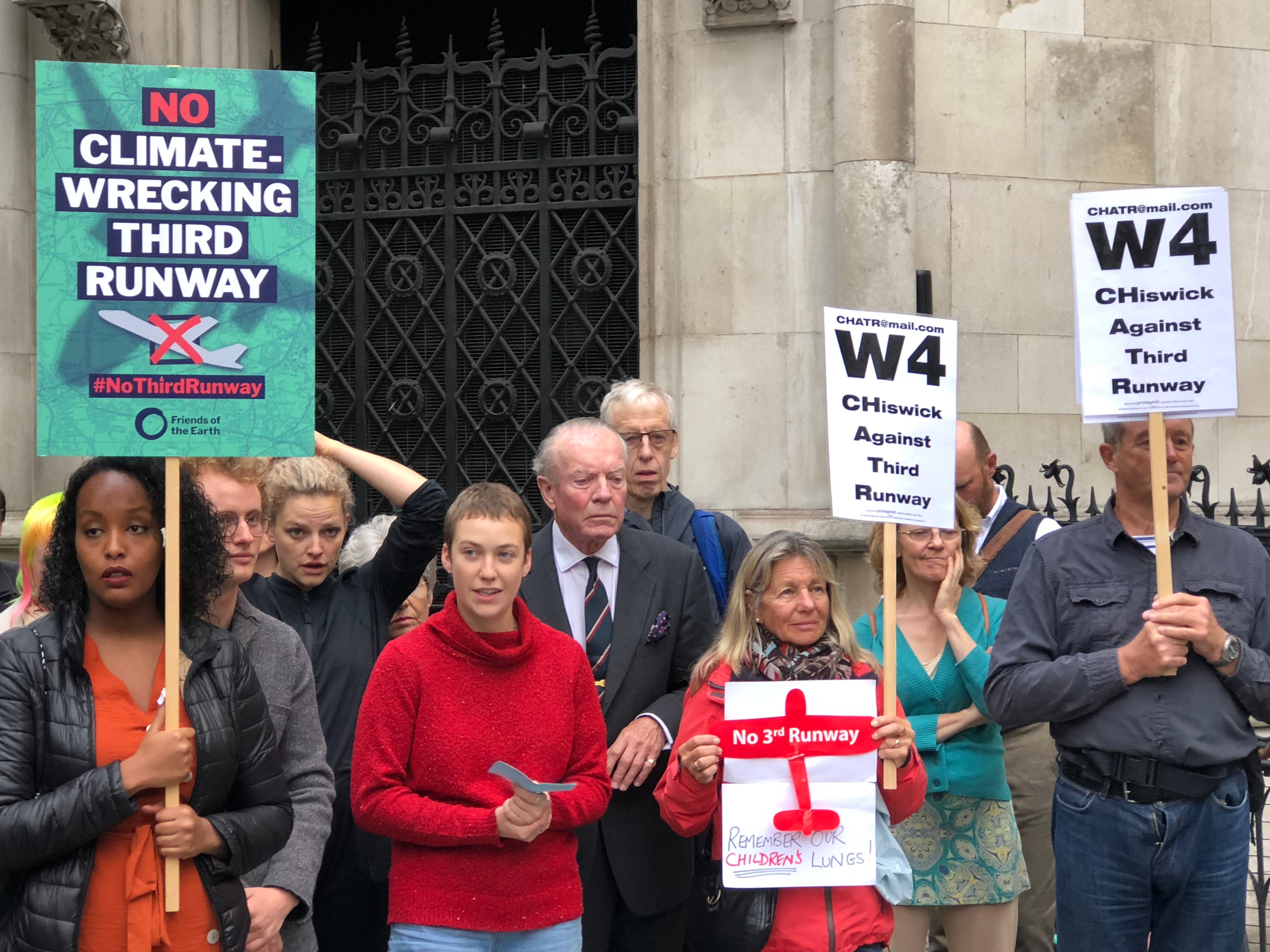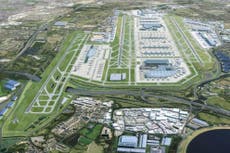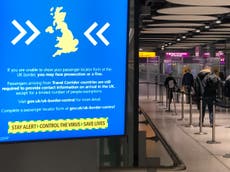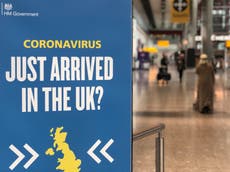Expansion at Heathrow would be a direct assault on this government’s ‘levelling up’ agenda
A third runway at Heathrow in the economically advantaged South East will be at the expense of economic opportunity in the less prosperous regions

The Supreme Court’s decision to overturn a landmark ruling, which found Heathrow’s third runway to be unlawful on climate crisis grounds, will have disappointed many across London and the South East, particularly the local communities who have now lived beneath the black cloud of Heathrow expansion for far too long.
History, however, could well judge this court’s decision to have been irrelevant to the final outcome. After all, it related to a technical issue about the quality of regard afforded by the secretary of state to the Paris Agreement. It was neither a ruling on the substantive issues nor an approval for the expansion to proceed.
The main obstacle to Heathrow expansion is what has changed since the Airports Commission recommended it, and since parliament approved the Airports National Policy Statement (ANPS), five and three years ago respectively. For so much has changed. Many of the assessments – on air quality, carbon and noise – are simply out of date, with significant inadequacies having appeared in each.
As for the fabled “economic case”, well, that now seems to issue from a different world. The ANPS had assumed the scheme would have been operating by 2028 in an atmosphere of growing aviation, and justified it economically on that basis.
Yet only last year, Heathrow’s CEO told the Transport Select Committee that they had abandoned this promised timeline. He told MPs that a third runway would not be needed until 2035, and added that construction would continue for 30 years, rather than the ANPS’ assumed five years, thereby wiping out the calculation for claimed economic benefits.
Not that the benefits had ever been anywhere near as great as Heathrow had touted (the Department for Transport’s own analysis having already concluded that the Net Present Value – the total benefits minus the total costs – could end up costing the economy £2.5bn). So, even before the pandemic, and the concomitant depression in aviation, had arrived, the economic assessment was spent.
But it is the arrival of a couple of new factors that – in concert – loom too large for Heathrow to ever expand. They are the Net Zero emissions target and the “levelling up” agenda, which only came into play after parliament had approved the ANPS.
The Climate Change Act has now been amended to incorporate a Net Zero target, requiring speedier reductions in our carbon emissions. And while Heathrow’s planning application, when eventually submitted, will ineluctably struggle to meet those tougher climate targets, the Climate Change Committee (the government’s adviser on how we implement our carbon commitments) may have already hammered the nail into the coffin.
The CCC has just advised in its sixth carbon budget, that there should be no net expansion of airports. This consolidated their advice, last year, that were Heathrow to expand, restrictions would need to be applied to regional aviation activity, including the reduction of flights and potentially regional airport closures. This means that expansion of Heathrow in the economically advantaged South East will be at the expense of economic opportunity in the less prosperous regions and therefore a direct assault on the “levelling up” agenda to which the political class has subscribed.
The only positive prospect for Heathrow expansion would seem to lie with the regulator, the Civil Aviation Authority (CAA) who determines – through the Regulated Asset Basis – how much income Heathrow (already the world’s most expensive airport) can derive from its customers. Perversely, under this model, the greater the assets that Heathrow acquires or builds, the higher the income they can draw; so it could even be said to incentivise the building of white elephants. And it would certainly be Heathrow’s only lifeline to building this one. The appetite of its shareholders to invest is as minimal as the equity they hold. They have refused to put in any new money to assist the airport through the pandemic, and the company is a house of cards, with a mortgage on virtually every asset (it has now reached a leverage ratio of 97 per cent – higher than any comparable UK infrastructure or utility operation).
The saga of expanding Heathrow has been long drawn out. It started 20 years ago; just one year after Heathrow’s CEO promised residents by letter that the airport would never seek permission to expand or raise the flight cap. And it may continue for some time yet. But for reasons of our recent, and ever tightening, carbon commitments, allied to the ramifications that these would have on the regions, were Heathrow to expand, it will come to an end.
So we await the logical announcement that the Airports National Policy Statement (which was only ever about Heathrow) has been dropped in pursuit of a nationwide strategic aviation policy, that incorporates our carbon commitments. When might the appropriate moment be? Perhaps at the launch of the Cop26 summit next year.
Paul McGuinness is chairman of the No 3rd Runway Coalition, a coalition of MPs, local authorities, residents groups, trade unions and environmental NGOs




Join our commenting forum
Join thought-provoking conversations, follow other Independent readers and see their replies
Comments